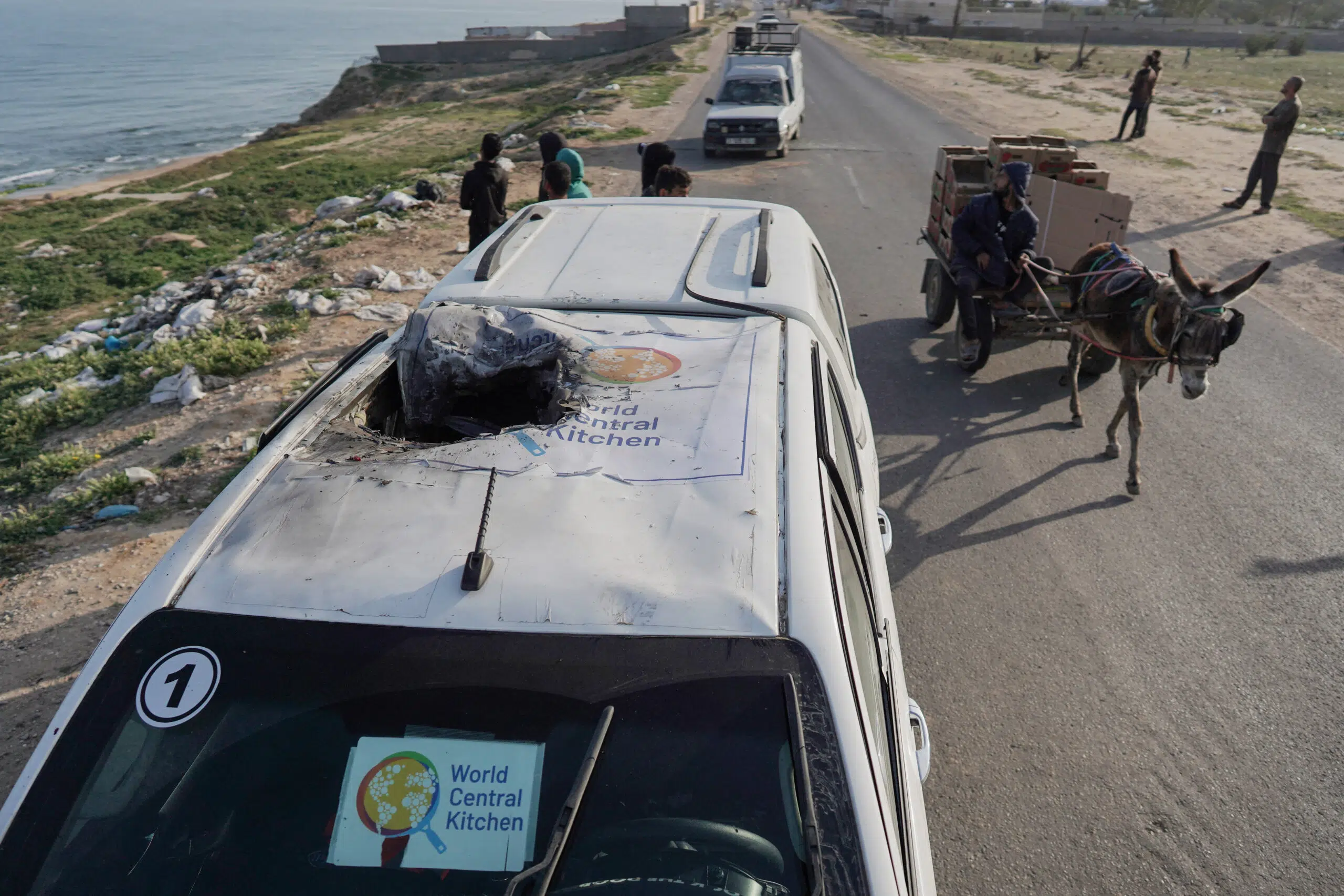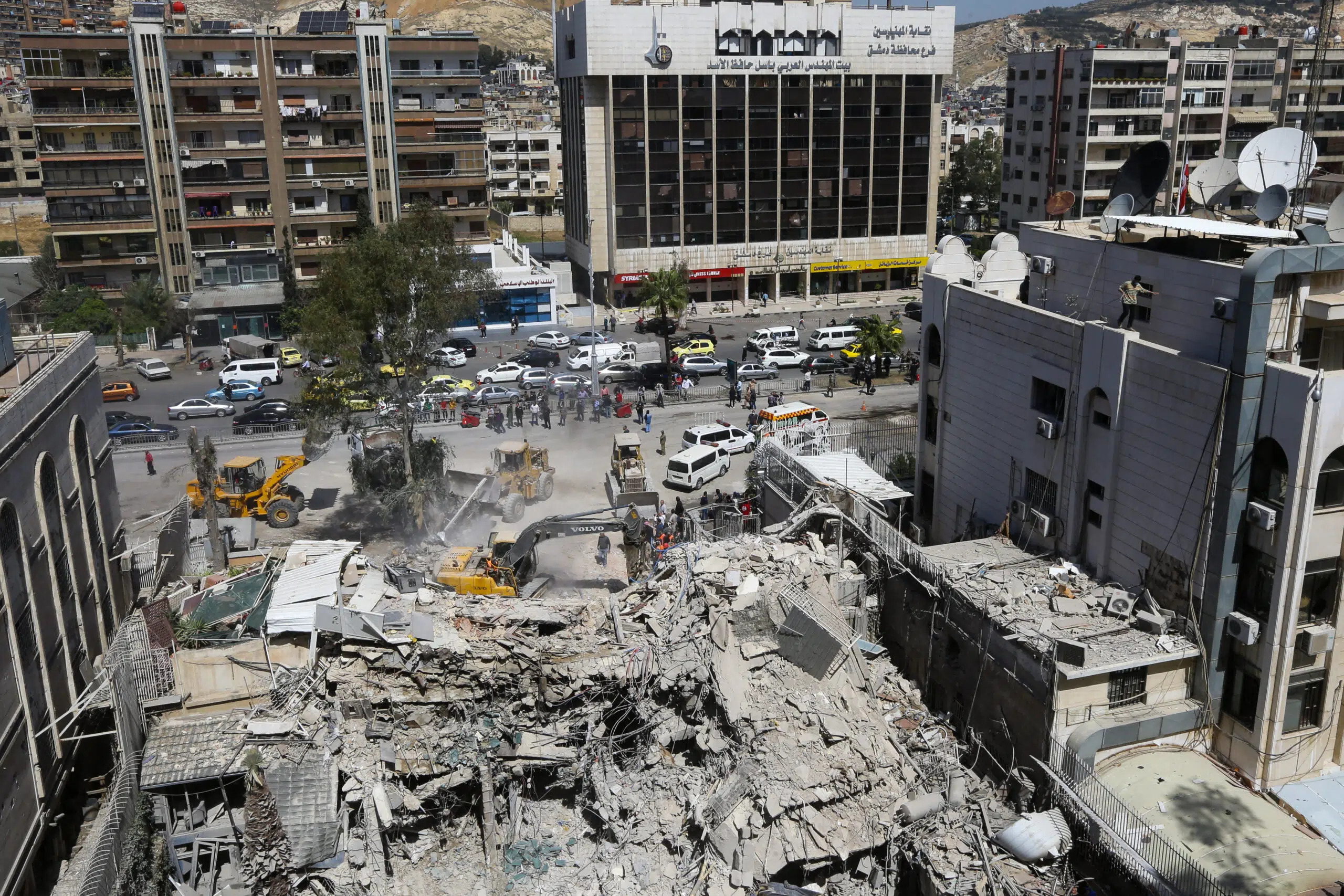Brussels – In just twenty-four hours, two fatal decisions increased the distance between Tel Aviv and the West: the reactions to the killing of seven workers of the US NGO World Central Kitchen and the attack on the Iranian consulate in Damascus are strong. So much so that even Netanyahu promises to “get to the bottom of this.”
The victims of the Israeli raid on Al-Aqsa Hospital, while they were distributing aid that arrived with difficulty by sea from Cyprus, are not the first aid workers to lose their lives in the Palestinian enclave. On the contrary, according to the senior UN official for the coordination of humanitarian aid in Gaza, Jamie McGoldrick, from October 7 to March 20, “at least 196 aid workers have been killed.” But this time, there is a binding resolution from the UN Security Council for an immediate ceasefire that is going unheeded. And there is the nationality of at least three of the victims: the passports found belong to the UK, Australia, and Poland.

The European Commission has called for “a thorough investigation” into the affair. “Humanitarian workers must always be protected, in line with international humanitarian law,” the EU executive wrote on X. From EU leaders, the usual pattern: Ursula von der Leyen merely “paid tribute” to the aid workers killed; Charles Michel argued that “it is long overdue to stop the massacre of innocent civilians and aid workers;” Josep Borrell “condemned the attack and called for an investigation.” Meanwhile, the UK government summoned the Israeli ambassador to London and US Secretary of State Antony Blinken called for a “swift and impartial” investigation.
If on the incident, Netanyahu justified himself by stating that “it can happen in war,” as if it were the result of a mistake – even though UNRWA has long reported that it is the target of Israeli bombings despite sharing in advance the coordinates of the locations chosen for aid distribution – the same cannot be said about the decision to attack and destroy the Iranian consulate in Damascus, Syria, in defiance of the oldest rules of international law, which stipulate the inviolability of diplomatic and consular sites.

The remains of the Iranian consulate in Damascus (Photo by Louai Beshara / AFP)
According to the Islamic Republic, the attack killed 13 people, including seven members of the Revolutionary Guards. Iran has already promised that Israel will be “punished” and also blamed the United States. The attack on the diplomatic headquarters of an unpredictable power such as Iran risks a dangerous escalation of the conflict. UN Secretary-General Antonio Guterres called on “all parties concerned to exercise maximum restraint and avoid further escalation,” warning that “any miscalculation could lead to a wider conflict in an already unstable region, with devastating consequences for civilians already witnessing unprecedented suffering.”
Heedless of the risk, Israeli Defense Minister Yoav Gallant told the Jewish Parliament that Israel “works everywhere to prevent the strengthening of our enemies.” While on the death of the seven World Central Kitchen workers, which also caused the NGO to suspend its commitments, in a statement released by Tel Aviv, he referred to the “tragic nature of the incident” and stressed the importance of “conducting a thorough and professional investigation.”
In the background, negotiations continue in Egypt for a cease-fire in Gaza and the release of Israeli hostages in the hands of Hamas. But the two sides remain far apart. With one week to go until the end of Ramadan, nothing remains of the satisfaction expressed on March 25 over the UN resolution calling for an end to hostilities until at least the end of the Islamic holy month, just the knowledge that neither Israel nor Hamas intends to listen to binding orders from the international community.
English version by the Translation Service of Withub






